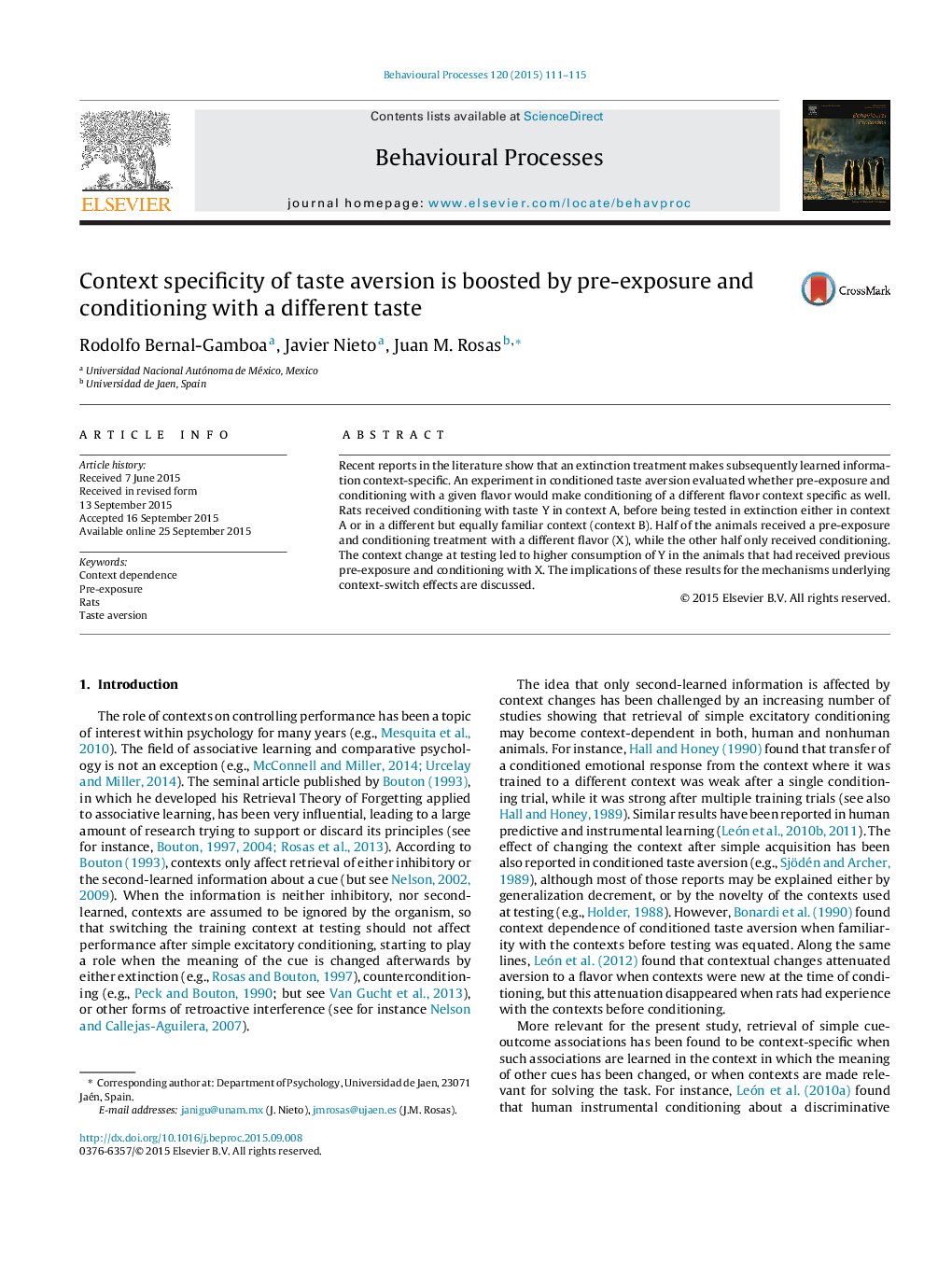| Article ID | Journal | Published Year | Pages | File Type |
|---|---|---|---|---|
| 2426501 | Behavioural Processes | 2015 | 5 Pages |
•Ambiguity makes retrieval of unambiguous information context specific.•Taste-aversion becomes context-specific after preexposure and conditioning of a different taste.•Acquisition of a taste aversion becomes context specific when a different taste has been previously presented with and without the illness.
Recent reports in the literature show that an extinction treatment makes subsequently learned information context-specific. An experiment in conditioned taste aversion evaluated whether pre-exposure and conditioning with a given flavor would make conditioning of a different flavor context specific as well. Rats received conditioning with taste Y in context A, before being tested in extinction either in context A or in a different but equally familiar context (context B). Half of the animals received a pre-exposure and conditioning treatment with a different flavor (X), while the other half only received conditioning. The context change at testing led to higher consumption of Y in the animals that had received previous pre-exposure and conditioning with X. The implications of these results for the mechanisms underlying context-switch effects are discussed.
